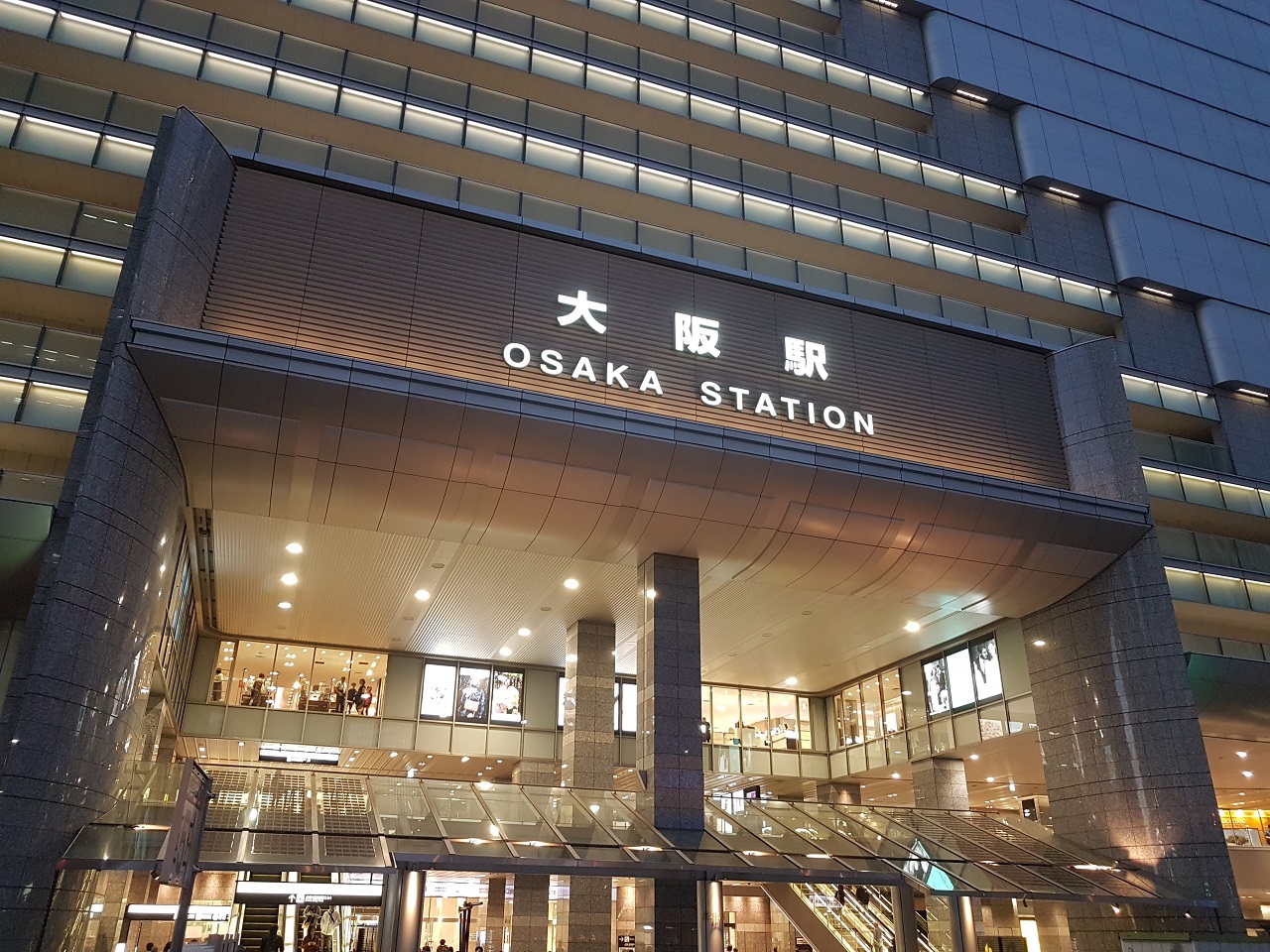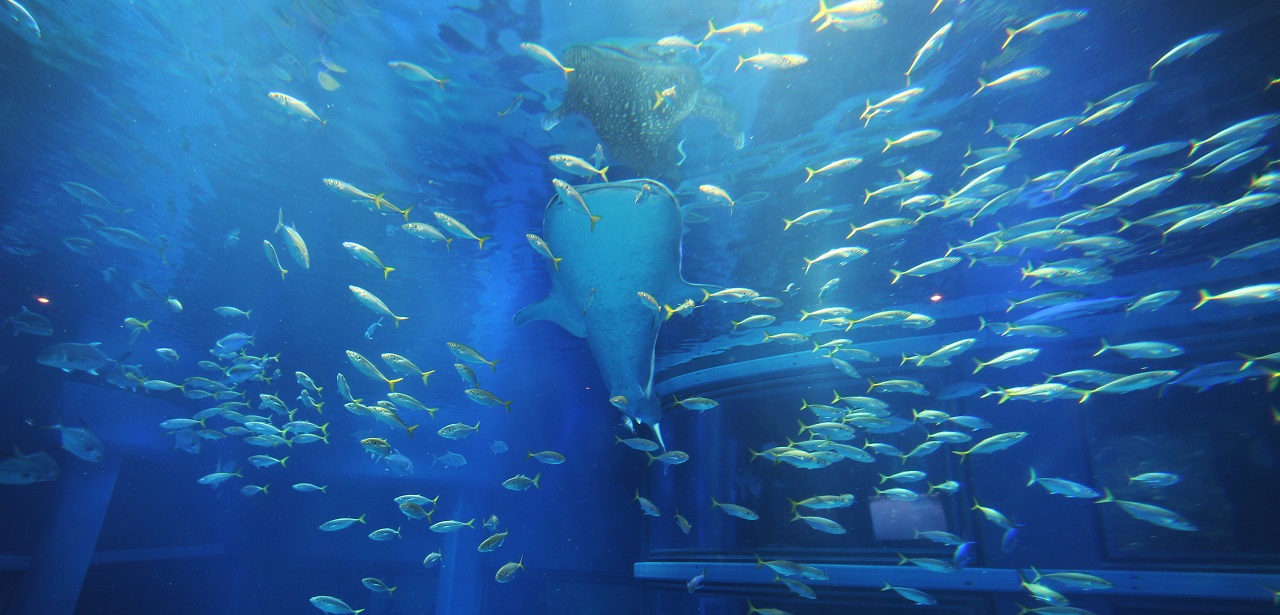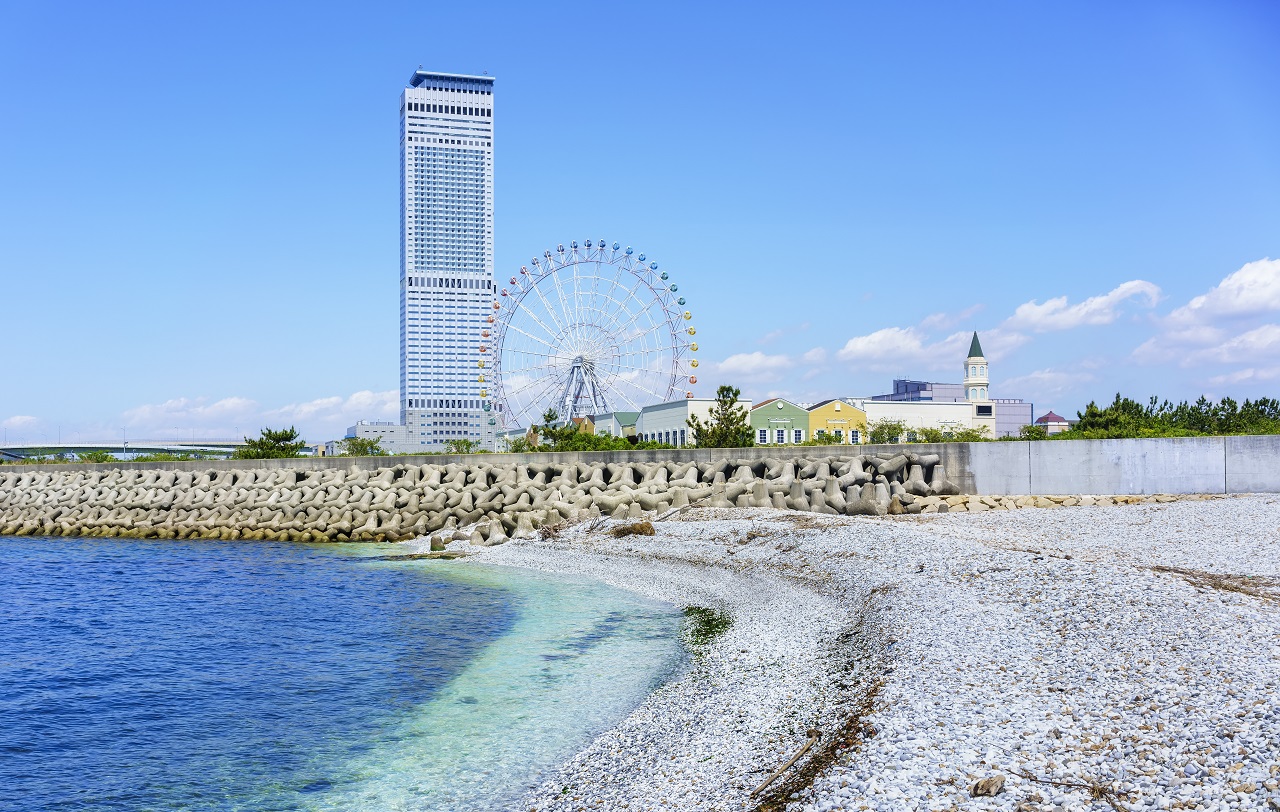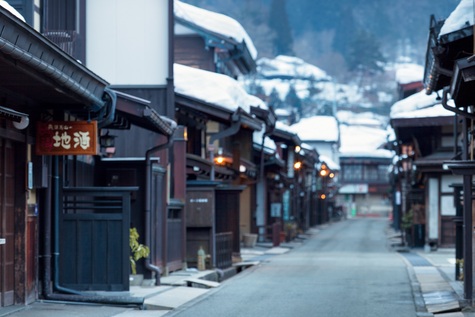
Osaka Destination guide
Osaka travel guide - What to do, see and visit in Osaka
Table of contents:
Introduction to Osaka
Naniwa, the original name of Osaka that is sometimes still referred to as today, has been a key port and trading centre since the beginning of Japan’s recorded history. The city faces the Seto Inland Sea, meaning its location is conveniently set where numerous rivers meet; making it a strategic spot for shipping since ancient times. Not only has its location solidified it as an economic hub for trading goods for centuries, but also for trading ideas such as Buddhism, architectural design and new technologies.
The very first state-run temple in Japan was built in Osaka in the year 593, solidifying the Buddhist presence in the country. As well as significant religious developments, it was also an important city in terms of politics. By the year 645, it had become the capital of Japan until it was moved to Nara in 710 with the rise of a new Emperor. During the Edo period of 1603-1868, Osaka served as Japan’s largest distribution centre for rice, which at the time was so valuable it was used as currency. This earned it the nickname of ‘Japan’s Kitchen’ which is a testament to the excellent array of cuisine that Osaka is still known for today. As Tokyo established itself as the economic hub of the country in the late 19th and 20th centuries, Osaka instead turned its vision to becoming one of the leading manufacturing centres in East Asia. During WWII however, this meant that it became a bombing target to disrupt the country's economy and trading abilities. In 1945 alone, one third of the city was flattened and over 10,000 people were killed. Osaka, however, made a remarkable recovery in the postwar era. It flourished as a commercial and transport center and has always remained an international city throughout its history, nurturing strong connections to the wider world.

Osaka has emerged as a modern, urban city. Whilst it remains the business hub of Western Japan with commerce being vital to Osaka’s operation, you’ll also find hip nightlife, some of the best food in the country and fantastic shopping. On the surface, a visit to Osaka might seem similar to Tokyo. You’ve got an unmistakable buzz in the air, towering neon lights and the quintessential Japanese fashion style of ‘anything goes’! However, once you dig a little further under the surface, Osaka has a life all of its own. It’s like Tokyo’s younger, grungier brother. It’s not all business; it has its own unique soul and vibe. A trip to Japan with an Osaka visit is simply not complete.
The Best Osaka Sightseeing Areas
When you are planning things to do in Osaka, it’s best to figure out what you would like to get out of your visit and then map your route from there. To ensure that you make the most of your Osaka travel, we have divided the Osaka highlights into Northern, Southern, Western and Greater Osaka. The entertainment areas of Shinsaibashi, Dontonbori and Namba make up the center of Osaka. The business hub of Umeda, which is also the transport hub, connects the city to Kyoto and Kobe. Further south you will find one of Osaka’s most fascinating neighbourhoods, Shinsekai, famous for Tsutenkaku, Janjan Yokocho Alley and a giant blowfish lantern sign. No matter if you’re coming for work or play, following this Osaka travel advice will ensure you create your perfect Osaka itinerary. What To Do In Osaka
The best things to do in Osaka conviently grouped by area. The mean area's are northern Osaka, locally reffered to as Umeda. Southern Osaka, better known as Namba, and eastern Osaka.Northern Osaka
Northern Osaka comprises the modern part of the city, and is also called Umeda. The Northern part of the city is important as it houses key railway hubs, outstanding examples of ancient and modern architecture and the stunning Osaka Castle. Northern Osaka tourism has many key historic and cultural sites to add to your Osaka itinerary. If travelling by rail, the main railway stations are also both located in this area.
Umeda Sky Building and Gardens

Dubbed as one of the best 20 structures in the world, the 170 metre structure comprises two towers and offers a 360 degree panoramic view of the city. Perhaps most impressive is the floating sky garden connecting the buildings on the 39th floor. Check out the city views from its observatory or open-air deck for a superb outlook over Osaka.

In the middle of a chaotic city, find some peace and serenity in Osaka Tenmangu Shrine. Founded in the 10th century, the shinto Shrine is a welcome break from the franticness of the nearby shopping districts. The architecture of the shrine is both unusual and unique, a distinct mix of Buddhist and Shinto influences. You will often find students here praying for good results during their school exams.

Osaka Station is a major railway station in Osaka’s Umeda district (also known as Kita). The building is a major transport hub and has an incredible glass roof which makes it one of Japan's most visually appealing railway stations. The JR Pass can be activated at either Osaka Station or Shin-Osaka Station.
For those who love to dabble in a side of shopping, the Grand Front Osaka might require you to set aside an entire afternoon. It boasts an enormous 270+ shops, making it one of the largest shopping districts in Japan and a must-do on your Osaka shopping trip.
If you are transferring between Osaka and the rest of Japan, the shinkansen or the “bullet train” is the fastest and most reliable way to get to your destination. From Shin-Osaka you can easily transfer to local trains and the subway system. Your JR Pass can also easily be activated here, making any railway transitions seamless.
Osaka History Museum
A major local history museum set in an iconic 10-floor building, which allows you to explore Osaka’s complex and intricate history. The museum is a must-see for anyone who is interested in learning more about the history and culture of Osaka.

One of Osaka’s most imposing historical monuments, the history of Osaka castle stretches back to the 15th century. Surrounded by beautiful gardens, the castle was built by Toyotomi Hideyoshi, the man who unified Japan after years of war and unrest. No matter the Osaka weather, a stroll through the castle satisfies the historical buff inside all of us.
Eastern Osaka
The focal point of Esatern Osaka is based around the Osaka Waterfront where huge attractions such as Universal Studios, Osaka Aquarium and the Tempozan Ferris Wheel can all be found. In a city bursting with highlights to see, a visit to Eastern Osaka is often less crowded with tourists. If you’re lucky enough to visit Osaka during sakura flowering, the river banks of Okawa are a beauty that must not be missed.
niversal Studios in Osaka was the first theme park under the Universal Studios to be built in Asia. Set on Osaka’s waterfront, the park offers thrilling rides, and incredible simulators based on movies such as Spiderman, Terminator 2 and Jurassic Park. A guaranteed fun day out for kids of all ages!
Osaka Waterfront
The Osaka Bay Area is home to an exciting array of entertainment, shopping and dining options. You will find Osaka Aquarium, Tempozan Ferris Wheel and Universal Studios Japan. Stroll along the boardwalk where the American-style atmosphere and food options may have you forgiven for thinking that you were in the USA, or take in the sites with a tranquil waterfront cruise.

One of the world’s largest aquariums is awaiting you in Osaka. The aquarium is a spectacular show of over 30,000 underwater creatures from all over the world including dolphins, sea lions, otters and even a whale shark.
Cosmosquare

The location of any advanced tech-development companies as well as convention, cultural and amenity facilities such as The World Trade Center and Intex Osaka. It’s here that you will also find the maritime museum, Zepp Osaka (a popular concert venue) and a range of clothing and cosplay shops. Southern Osaka
Be prepared to set all of your senses alight as you step foot into Southern Osaka, also known as Namba. Positively bursting with things to do, see, taste and enjoy, this area of Osaka is the one which leaves you feeling most alive. The buzz of Southern Osaka is simply electric. You could spend years exploring all of the back streets by night and day and still discover new treasures. Venture out as the sun starts to set to see a city come to life before your eyes.

Shinsaibashi-suji has been Osaka’s most important and popular shopping area for 400 years. Hundreds of shops line the 600 metre-long street from huge department stores to smaller, independent boutiques. There’s something for every taste and every budget!
Dotonbori

The heart and soul of Osaka lives in Dotonbori. Known for its dazzling neon lights, extravagant signage and incredible variety of restaurants and bars. As one of the most iconic areas in Osaka, no trip to Osaka is complete without your Instagram being taken over a photo with the famous Glico Man. The sizzling sounds of food you will almost certainly be trying for the first time delight your senses. The street food culture in Dotonbori is second to none, so be brave and try as many different dishes as you can! Some age-old favourites include takoyaki, okonomiyaki and different styles of crabs.

Namba is an unmissable, unforgettable area of Osaka. Considered the heart of the city, exploring Namba is like taking a deep dive into Osaka’s unique culture. Namba, also known as “minami”, means “south” because of its southern location in the city. It tops the list of remarkably vibrant places that you can visit at night.

Locals and tourists flock to Shinsekai, or New World, which was constructed as a hip new neighbourhood based on the streets of Paris (complete with its own eiffel tower!) and the amusement park feel of Coney Island. It is here you will find some of the best food in Osaka, including kushikatsu (deep-fried skewered vegetables and meat) or fugu (blow fish).
Denden town is Osaka’s equivalent of Tokyo’s Akihabara. The area has long been known for its pop culture, electronics, anime shopping and computer games. Home to many specialist manga shops which offer an eye-opening exploration into Japanese culture, a trip to Denden town is one that might take hours longer than expected, depending on what you find.
Amerikamura was originally named “American Village” due to its strong focus on importing Western merchandise. For over 40 years it has been a well-known center of Japanese trendsetting youth. Soak in the atmosphere where east-meets-west, window shop the latest trends or enjoy buskers playing 1980’s American hits.

The covered marketplace is nicknamed “Osaka’s Kitchen” with both locals and tourists flocking to get the freshest range of food. A wander through the market is a wonderful experience of many smells, sounds and tastes; with many stalls preparing, cooking and serving food right in front of you.
Shitennoji Temple

Shitennoji is a Buddhist temple which is regarded as one of the oldest temples in Japan, dating back to 593. It is distinguished by its five-story pagoda, ponds full of turtles and unique symmetrical architectural style. Outer Osaka
The historical and cultural highlights don’t end at the edge of the city limits. Within a few hours, you could be checking out one of the most important shrines in Japan or delving into the totally unique and ultra-Japanese Cup Noodle Museum. The Outer Osaka area has something for everyone, from lovers of beer to lovers of bargains!

You’ll feel like you’re in Hollywood with the palm-tree lined avenues and bright blue skies, but in reality you’ll be just outside Kansai airport. Head to Rinku town before a long flight to cash in on some bargains at the wide range of retail outlet stores such as Adidas, Kate Spade and The North Face.
Head to Expo 70 park to enjoy the expansive grounds which combines cultural, sporting and leisure activities. You will also find the Tower of the Sun building as well as the Japanese gardens and folk museum.
If you simply can’t get enough of ramen, this museum is made for you! Learn everything there is to know about the creation and history of instant ramen. You can view interesting displays, interactive exhibits and even watch a live factory demonstration. This is certainly not your usual museum, but perhaps one of the tastiest around!
One of Japan’s most loved beers actually has its roots in Osaka. With a 110 year long history, the guided tours available are not to be missed. Best of all, once the tour is over they offer 20 minutes of unlimited refills of their freshly-brewed draft beer. There will be a pop quiz after this tasting session to see how many facts you retained from the tour (just kidding!).

Sumiyoshi Grand Shrine is a shinto shrine that is one of the most important in the Osaka area. It is the head of approximately 2,300 Sumiyoshi shrines throughout Japan, and has a significant religious importance. The picturesque grounds of the shrine make for a peaceful afternoon stroll, whilst learning all about the history of a shrine that dates back to 211 AD.
See also

Takayama Destination Guide
A cidade montanhosa de Takayama é mais conhecida por seus festivais épicos, belas montanhas circundantes e interessante arquitetura tradicional. Takayama é um destino que vale a pena por si só, ou um ótimo lugar para se basear para explorar as montanhas japonesas.

Nara Destination Guide
Para aqueles que procuram a viagem de um dia ideal, uma visita a Nara deve definitivamente fazer parte do seu itinerário no Japão.

Kyoto Destination Guide
Kyoto foi historicamente a capital e centro cultural do Japão e possui uma rica história de cultura e tradição. Aprenda sobre as melhores coisas para fazer, ver e experimentar em Kyoto.

Nikko Destination Guide
Conhecido como um centro de adoração de montanha Shinto e budista por muitos séculos, o Parque Nacional Nikko oferece paisagens montanhosas cênicas, lagos, cachoeiras, fontes termais, macacos selvagens e trilhas para caminhadas